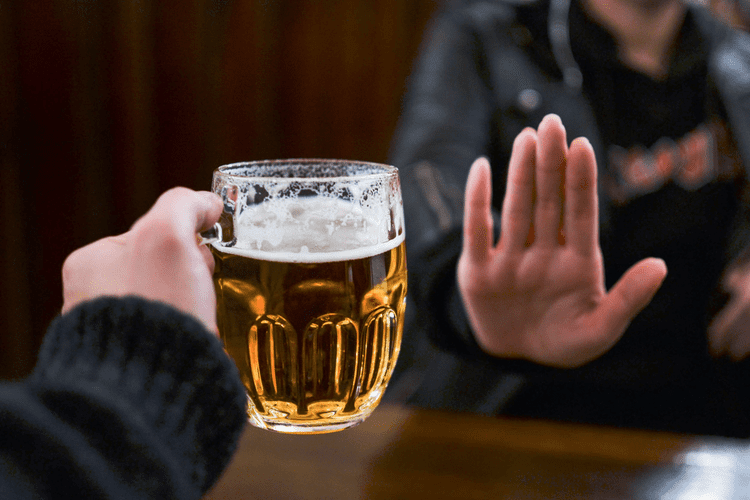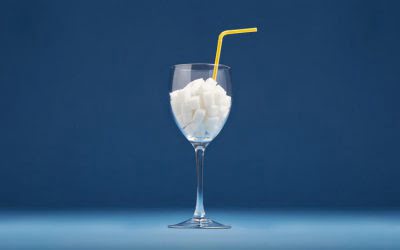Withdrawal seizures can be a sign of delirium tremens, which can occur as soon as 48 hours after a person’s last drink. Medical detox programs for alcohol dependency commonly offer medications to ease the discomfort or pain of withdrawal. This is a benefit that isn’t available to all who attempt to taper at home. Medicines can be used to reduce nausea, severe anxiety, other flu-like symptoms, and treat seizures. Tapering off alcohol is not the most beneficial option for everyone. People who are severely dependent or addicted to alcohol should seek medical support for alcohol detox.

If you’re lucky enough to have a supportive friend, a roommate, or a family member that lives with you who can assist, that is ideal. Tell them what you’re planning on doing, give them a copy of your planned taper schedule, and have them hold all the alcohol to portion out and give to you as needed. Ideally, pick someone who doesn’t also have a problem with alcohol. Note that in some states, doctors may commit individuals at risk of harming themselves to 72 hours of involuntary treatment for addiction. These states include, but are not limited to, California, Colorado, Delaware, DC, Florida, Maine, Mass, Pennsylvania, Texas, Virginia, and Washington.
Pros and Cons of Tapering Off Alcohol Intake
Tapering will normally create less severe alcohol withdrawal symptoms but will spread them out over a prolonged period. Essentially, tapering provides less intense withdrawal symptoms but over a longer amount of time. If your BASELINE ALCOHOL CONSUMPTION is less than 20 drinks per day then we recommend reducing consumption by two standard drinks per day. Likewise if your average consumption is 6 standard drinks per day you can set a taper schedule of 4, 2, 0. Depending on how much you drink, tapering off alcohol can take one to several weeks. It’s best to reduce your drinking by a small amount each day to avoid the shock to your system.
Support groups, from Alcoholics Anonymous to SMART Recovery, are one free way to find a community of people on the same journey. There are also a number of anti-craving medications to help you avoid drinking again, or even help with your tapering process. Finally, finding a therapist or a recovery coach can help you develop new coping mechanisms and move forward http://everbestnews.com/nedvizhimost/kvartal-krasnyx-fonarej-v-amsterdame.html in your life. Tapering is meant to reduce the withdrawal symptoms from quitting alcohol, but this isn’t a guarantee. As mentioned above, many people will still experience some level of withdrawal, just to a lesser degree. Unfortunately, your brain may be sensitized to withdrawal due to kindling, which can set you up for unexpectedly severe withdrawal symptoms.
Cons of Tapering off Alcohol
All ninety two patients reported major reduction in alcohol consumption and major reductions in alcohol related harm. All reported that using Medical Marijuana caused far fewer life problems than did using alcohol. Once your taper is complete, discard or immediately give away https://saminvestor.ru/context/?parent=rubricator&child=getresearch&id=21558 any remaining alcohol in your house and try to avoid high-risk environments such as bars, liquor stores, casinos, etc. The hardest thing will probably be to stop yourself from starting again. I’ll be honest, your chances of staying sober on your own are slim to none.
- Unfortunately, alcohol withdrawal symptoms can worsen quickly, and they can include agitation and hallucinations that make it more difficult to seek help.
- Some people don’t care to use this strategy because their purpose in drinking is to increase social conviviality.
- Fortunately many states have recognized that forced AA participation is unconstitutional because it violates the right to freedom of religion.
- By substituting alcoholic drinks for non-alcoholic drinks, you can still engage in most of your habit without getting the alcohol that makes it addictive.
If you try a slower taper, you risk dragging it out too long and decreasing your chances of quitting. If you do it too fast, you increase your chance of severe withdrawal. You may need to do a slower taper than someone else who was drinking the same amount as you. Remember, you can always slow your taper, drink more alcohol, or seek medical help if needed.
Withdrawal and Safety When Tapering Off Alcohol
This is clearly the case with whiskey and beer–everyone gets drunk more quickly on straight whiskey even though it is not carbonated. Therefore, eat well and be well hydrated before you start drinking alcohol. Eat first and be well hydrated before you start drinking alcohol. Your stomach has only a few square feet of surface area to use to absorb liquids, but your small intestine has many thousands of square feet available to absorb liquids.

Minor symptoms of alcohol withdrawal can start as soon as six hours after the last drink of alcohol. Once they appear, acute symptoms may continue for around a week. Tapering is the practice of slowly reducing regular consumption of a substance like alcohol.
Preparing To Wean Off Alcohol
It doesn’t mean you have to go to rehab (though that’s certainly an option). You can try support groups, therapy, psychiatrists, spiritual groups, and outpatient rehab services. https://www.flylady.ru/fly/viewtopic.php?t=455&p=1444935 I have a complete guide on Alternatives to Rehab, which has over a dozen different options to select from. I’m not saying smoking weed all day is a healthy coping skill.

